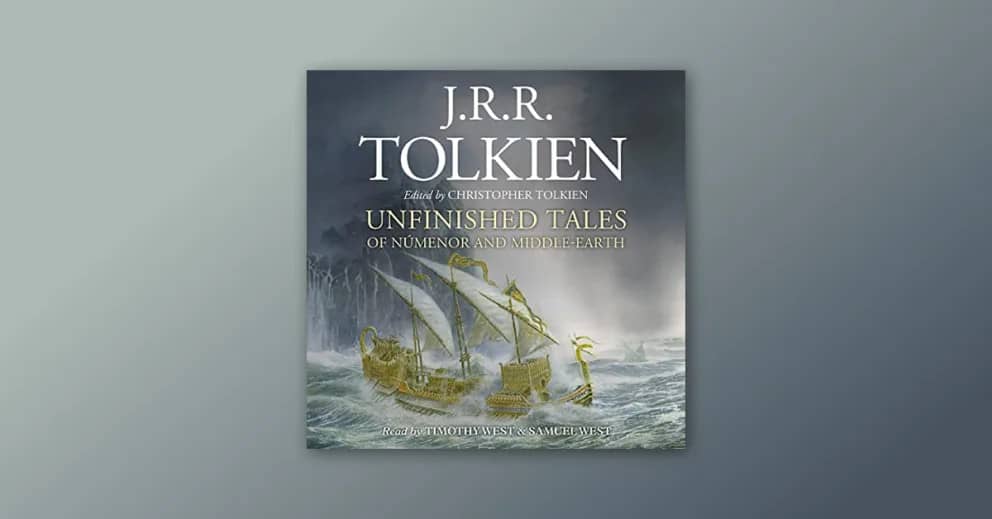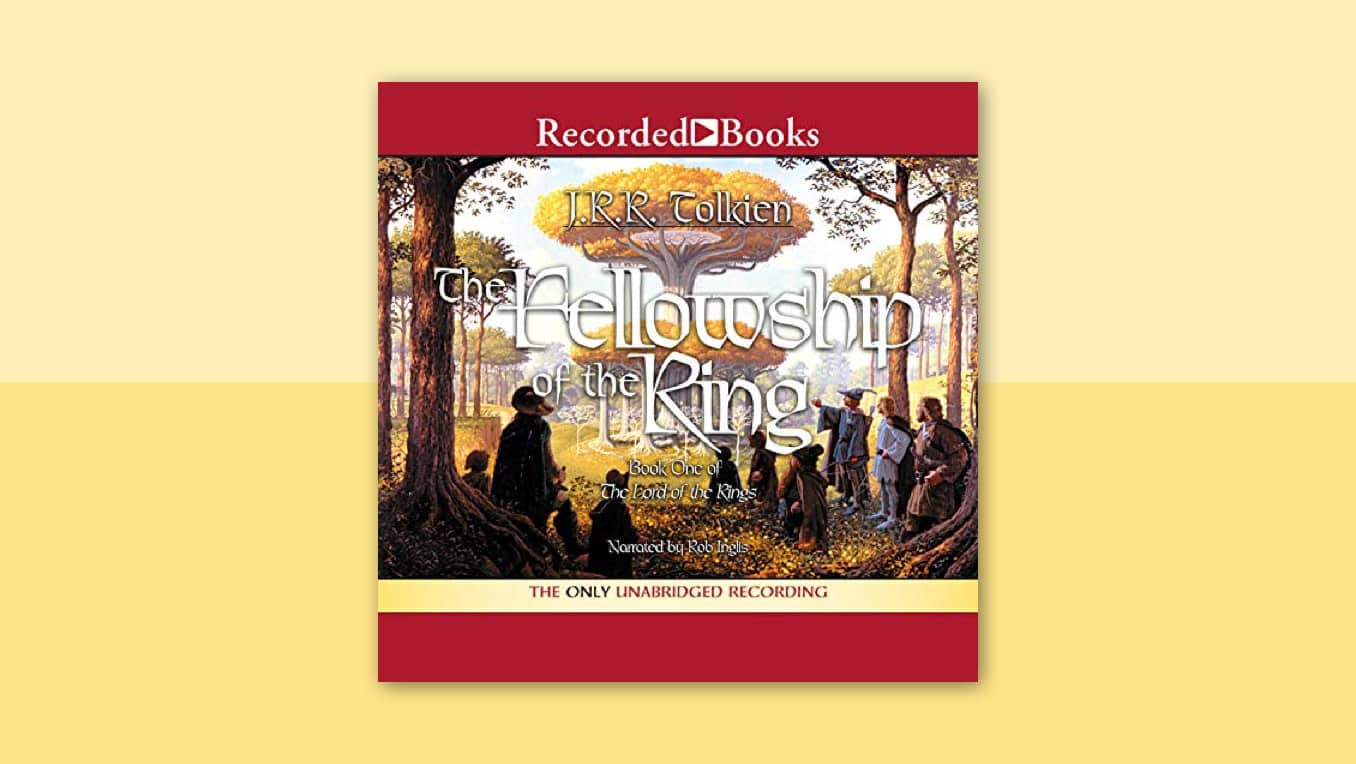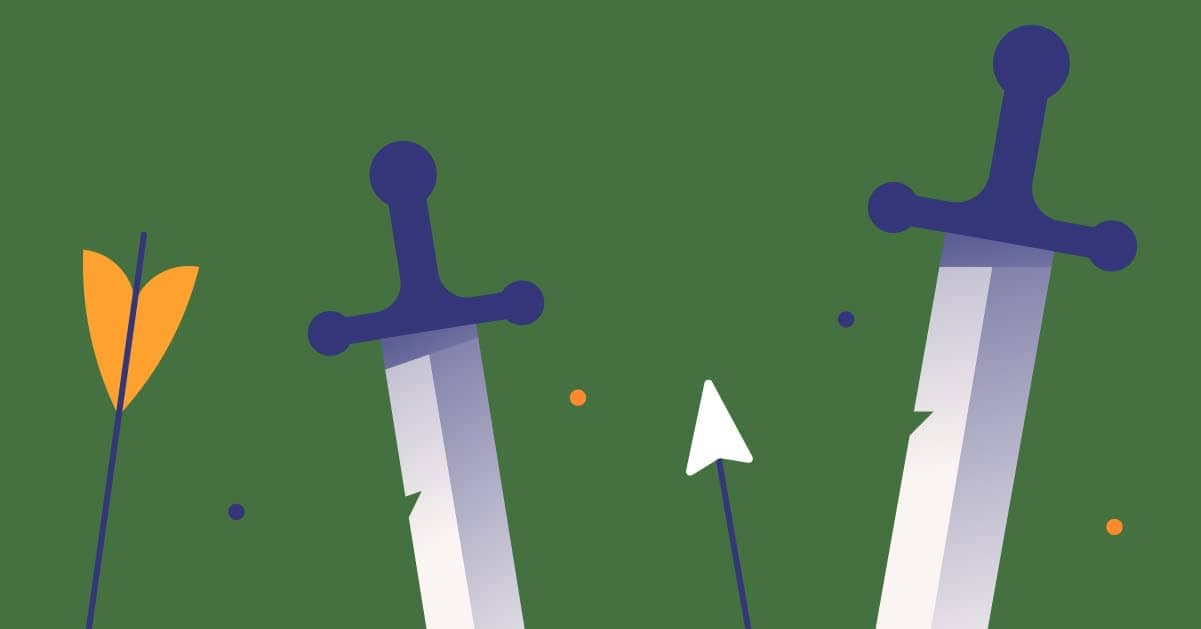Set thousands of years before the events of The Hobbit and The Lord of the Rings trilogy, the streaming series The Rings of Power premiered on Prime Video on September 2, 2022. Rooted in J.R.R. Tolkien's history of Middle-earth, the series covers many of the major events of the fictional world's Second Age. But what is the Second Age, and how does this period of time factor into the rest of Tolkien's world? Read on to find out.
What are Tolkien’s "Ages"?
J.R.R. Tolkien's stories are divided into four different time periods, or "Ages," appropriately called the First Age, the Second Age, the Third Age, and the Fourth Age. These Ages were decided upon by the Loremasters and the Wise, and divisions in time periods were made according to major historical events that occurred in each Age. The First Age marks the rise of the Elves, Dwarves, and Humans and their wars against Morgoth. The Second Age is the era in which Sauron, a servant of Morgoth, dominates the Westlands. The Rings of Power are also forged within this period. The Third Age is the time period in which The Hobbit and The Lord of the Rings are set. This age is marked by the rise of Sauron against the Númenórean kingdoms and his eventual defeat during the War of the Ring. The Fourth Age is the time period after the fall of Sauron, when Dwarves, Men, and Hobbits prosper.
The Second Age: A Timeline of Major Events
While many significant events take place over the 3,441 years of The Second Age, here's a look at some of the more notable moments that will go on to affect the events of later ages, including what transpires in The Hobbit and The Lord of the Rings. The Second Age saw the rise of Sauron after the defeat of his master, Morgoth. During this period, Sauron built his armies, established himself as the Dark Lord, and built a fortress in Mordor called Barad-dur, also referred to as the Dark Tower. The Second Age is also when Sauron tempts the Elves to forge the One Ring, the Ring of Power that can rule over all others. The Nùmenóreans also waged war against Sauron during this Age.
Here is a brief look at the timeline of Middle-earth, including some of the most important events during The Second Age. If you're curious to discover more, be sure to listen to Tolkien's The Silmarillion and Unfinished Tales—both offer valuable insight in the world, history, and lore of Arda as a whole.
Timeline of the Second Age
Year 500: After the defeat of his master, Morgoth, Sauron returns from the East.
600: The Nùmenóreans reach the shores of Middle-earth.
1000: Sauron gains enough power to establish himself in Mordor. He begins building Barad-dûr near Mount Doom.
1200: The Númenóreans build permanent havens in Middle-earth.
1500: The Rings of Power are forged.
1590: The Three Rings are constructed.
1600: The One Ring to rule over all others is created.
1693: The War of the Elves and Sauron begins.
1697: Elrond founds Rivendell.
1699: Rivendell and Lindon are besieged.
1700: The War of Elves and Sauron ends.
2221: The people of Númenor divide into two parties. The King's Men, later known as the Black Númenóreans, are those who were corrupted by Sauron and worship the Darkness and its Lords. The Faithful, also known as Elendili, remain in an alliance with the Elves.
2259: The Nazgûl, or ringwraiths, first appear.
3299: Sauron becomes the High Priest of Melkor, and The Faithful are persecuted and sacrificed to Melkor.
3319: Númenor is drowned, and the world's shape is forever changed from flat to round.
3341: Sauron is defeated when Isildur cuts the One Ring from Sauron's finger, thus destroying his physical form. After this, the One Ring is lost for more than 2,000 years. The defeat of Sauron marks the end of the Second Age.
The Major Characters of the Second Age
Sauron
Sauron is the maker of the One Ring. After the War of Wrath which marked the end of the First Age, Sauron establishes himself as the second Dark Lord. Sauron wishes to conquer Middle-earth and Númenor, and he builds armies of loyal followers to help him. At the end of the Second Age, Sauron is defeated in the final battle of the Last Alliance of Elves and Men when Isildur is able to cut the One Ring off of him.
Elrond
Elrond is the half-Elven Lord of Rivendell. At the beginning of the Second Age, Elrond and his half-brother Elros are given the choice to be counted among Men or Elves. While Elros chooses the Fate of Men, Elrond opts to be counted among the Elves. At the start of the War of Elves and Sauron, Elrond goes to Eregion to protect it, but he is unable to defeat Sauron's army. Elrond hosted the first White Council in Rivendell, where it was decided that the Elves would keep the Rings of Power hidden from Sauron.
Galadriel
Galadriel is the Lady of the woods of Lothlórien. She was one of the Elves who helped in the creation of the Rings of Power. Her ring is Nenya, the Ring of Water. Fearing what Sauron planned to do with the rings, Galadriel refuses to use hers as long as the One Ring is in Sauron's hands.
Isildur
Isildur plays an important role in the War of the Last Alliance. He cuts the One Ring from Sauron's hand, thus defeating Sauron and destroying his physical form. However, Isildur refuses to destroy the One Ring. His refusal means that Sauron's spirit lives on and would remain a threat to Middle-earth for many years. After Isildur is killed by orcs, the ring is lost for more than 2,000 years.
Gil-galad
Gil-galad is the last High King of the Ñoldor. He is responsible for forming the Last Alliance of Elves and Men alongside King Elendil, and he leads the Elves into war against Sauron. In the final battle against Sauron, Gil-galad is able to inflict enough wounds to destroy Sauron's physical body and give Isildur the opportunity to cut the One Ring from Sauron's hand. Unfortunately, Gil-galad is severely burned from the heat of Sauron's hand and passes on to the Halls of Mandos.
How does the Second Age relate to The Lord of the Rings?
If you are a fan of The Hobbit and The Lord of the Rings, you'll recognize the Second Age as an important precursor to the events of Tolkien's most famous and beloved books. Here we see the first downfall of Sauron, which sets up his eventual return and struggle for power by retrieving the One Ring. It is also established here that the One Ring was lost at the end of the Second Age, and if you've listened to The Hobbit, then you know that the ring will eventually make it into the hands of Déagol. Soon after, his cousin Sméagol, covetous of the ring, would kill his cousin to get the ring for himself. In The Hobbit, Hobbit Bilbo Baggins steals the ring from Sméagol, who at that point is known as Gollum. From there, the ring makes it to the hands of Bilbo's nephew Frodo Baggins, and so begins the journey to destroy the ring, which is central to The Lord of the Rings trilogy.
When is The Rings of Power set?
When you tune into The Rings of Power, you'll be following all the major events of the Second Age—the longest of the chronicled Ages, spanning 3,441 years. The Second Age begins around the time Morgoth was defeated, in about the 584th year after the Return of the Noldor to Middle-earth, and ends with the first defeat of Sauron.
This is the first time the story of The Second Age will be brought to life on screen. In the first season, fans will see Robert Aramayo as Elrond, Maxim Baldry as Isildur, Morfydd Clark as Galadriel, Benjamin Walker as Gil-galad, and many other beloved characters from The Second Age. The series also introduces new original characters.




